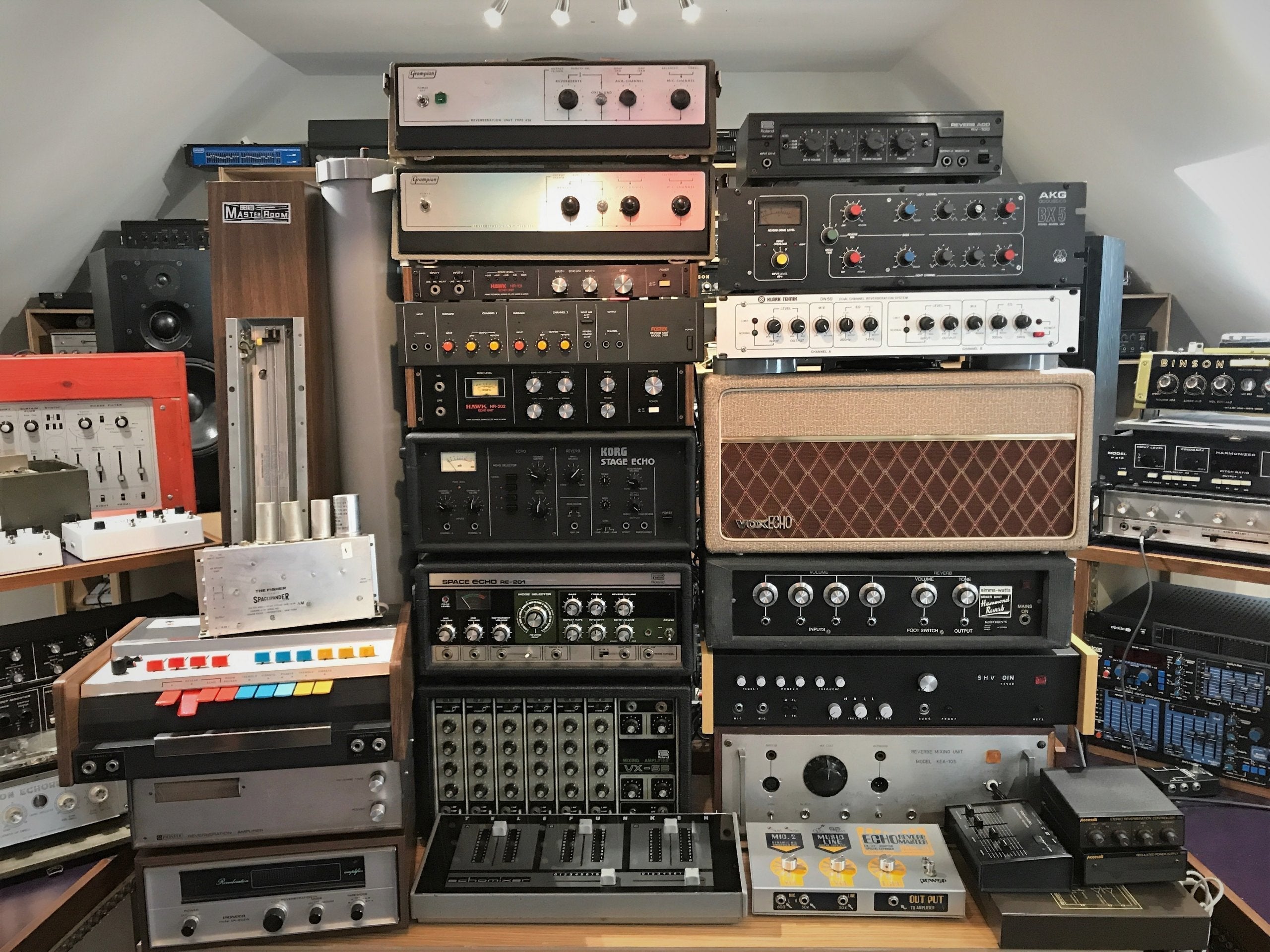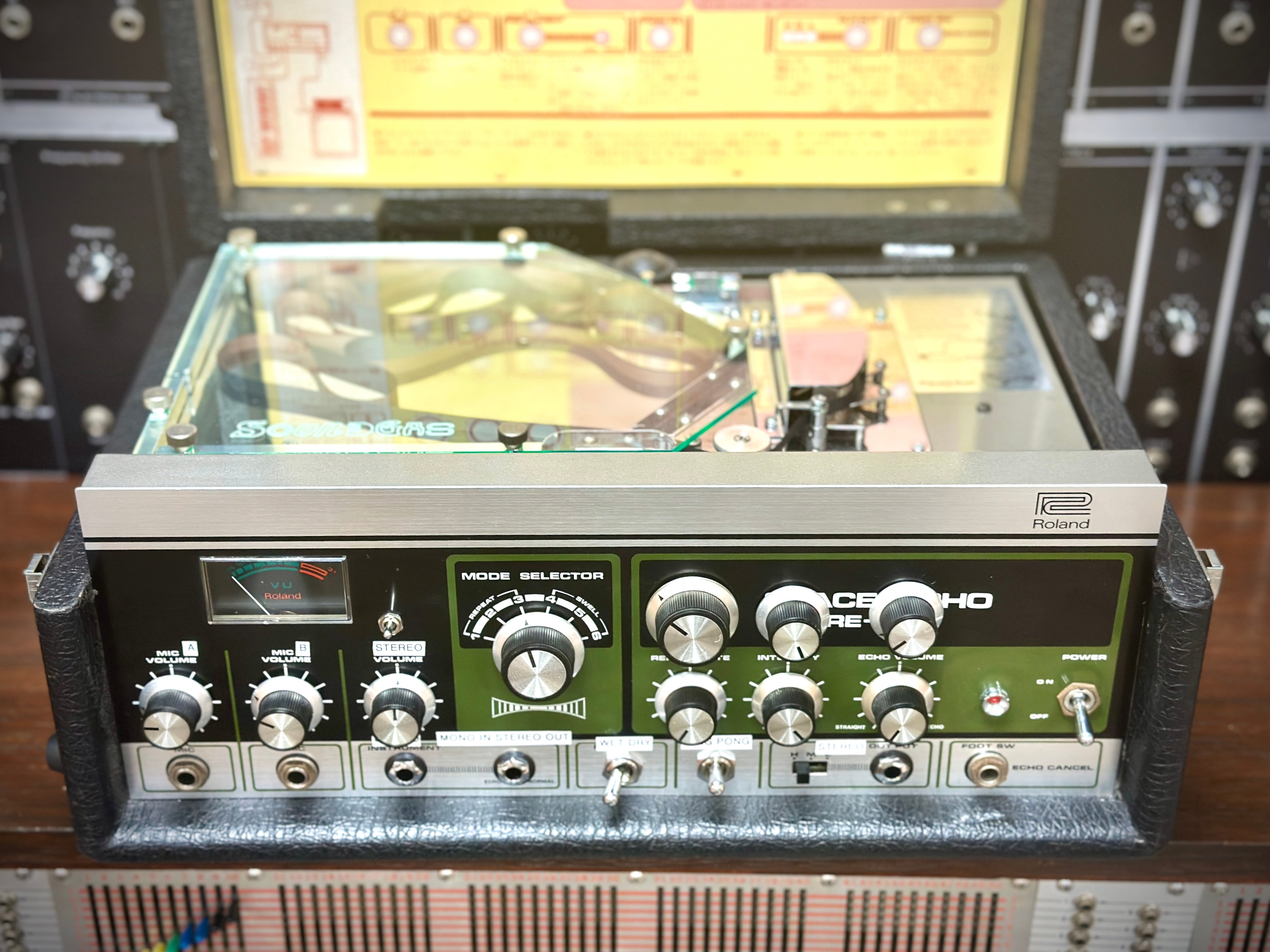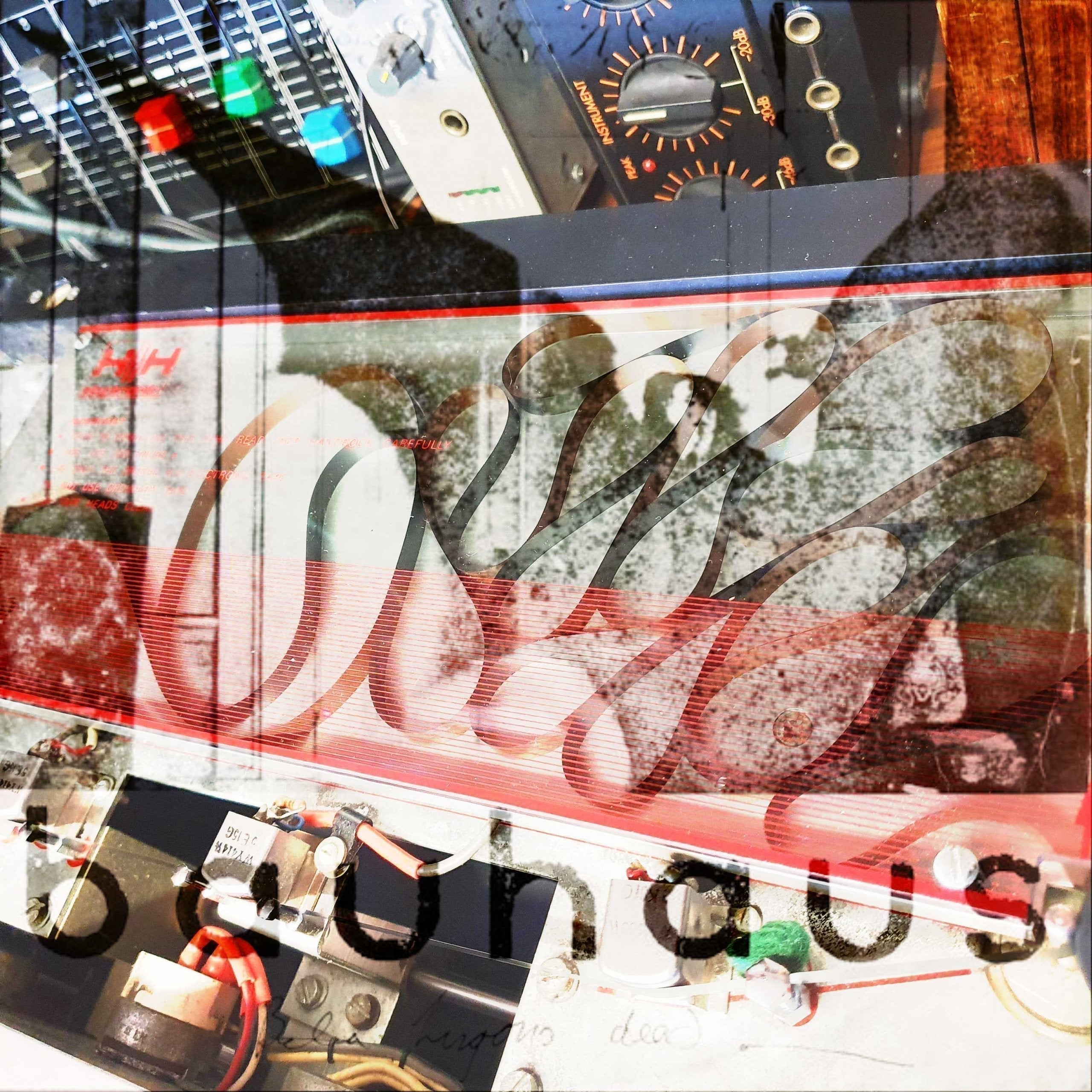
A Gambler’s Life: Why Selling Vintage Gear Is a Rollercoaster

They say the house always wins, but in the world of vintage audio gear, the odds are anything but predictable. I come from a long line of gamblers—my Grandad and Great Uncle were on-course bookmakers at the horse races, and before I found myself knee-deep in vintage synths and studio gear, I was a croupier and casino manager.
These days, I run the finances at Soundgas, and while it may seem like a world away from the gambling industry, in many ways, buying and selling vintage gear is just another kind of high-stakes game.
Thinking of selling vintage gear?
Before you dive in, it’s important to understand the real risks, costs, and challenges of running a vintage audio business. Many assume it’s a profitable trade, but as we’ve learned over the years, the reality is far more complex.
Every time we import a piece of vintage equipment, we’re rolling the dice. Until our technicians open it up, we have no idea what’s inside. It could be a hidden gem—a rare find that just needs some love—or a complete write-off, destined to become a donor machine for spare parts. Over the years, we’ve amassed a huge stockpile of these lost bets, the ones that weren’t viable for restoration but might one day help us bring another unit back to life.
The business has been a rollercoaster. Since starting in 2013, we grew to employ 14 people by 2020, including seven highly skilled technicians—five of whom we trained in-house. Last year moved into a bigger premises because the sheer amount of stock required for restoration demands serious space. And yet, despite our success in the industry, the reality of running a business like this is far from the easy money some assume it to be.
The Highs and Lows of Vintage Gear
1. Every Purchase Is a Gamble

In the casino world, you learn to manage risk. In vintage gear, the stakes are just as high. We import most of our stock, often sight unseen, and when it arrives, we never know if we’ve hit the jackpot or if we’ve just bought an expensive problem. A unit that looked perfect in photos might be a nightmare internally, requiring weeks (or even months) of painstaking work to bring it back to life.
Why is selling vintage synths & studio gear a gamble?
Because restoration takes time, money, and expertise—and sometimes, even after all that, the unit just doesn’t make it. It’s an unpredictable business that requires patience, resilience, and a willingness to take financial hits.
2. The Illusion of Profitability
On paper, a 30-35% gross profit margin on fully restored vintage gear sounds reasonable. But that’s before you factor in £30,000 per month in overheads—rent, wages, tools, parts, and the hours of skilled labor that go into every piece. We don’t cut corners, which means we often put far more time and money into a restoration than we’ll ever recoup.
Soundgas: The reality of running a vintage audio business
Despite our reputation, financial sustainability has been a constant challenge. From Brexit complications to insolvency, we’ve had to navigate some of the toughest obstacles any business can face. And yet, we’re still here—because we’re passionate about what we do.
3. Brexit Was a Losing Hand
Before Brexit, 30% of our sales went to EU customers. That market disappeared overnight thanks to increased costs, customs delays, and VAT complications. We lost long-standing customers who simply couldn’t justify the added expense and hassle. It was a financial hit that still affects us today.
Vintage gear restoration: A passion or a financial risk?
The answer depends on how you measure success. If success is big profits, fast turnarounds, and easy wins, then this industry isn’t for you. But if you’re in it for the love of the gear, the craft of restoration, and the joy of seeing these machines make music again, then it’s one of the most rewarding jobs in the world.
4. Unrealistic Price Comparisons
Despite employing highly skilled in-house technicians, our prices are regularly copied by sellers who don’t offer the same level of service. We are sometimes accused of “hiking up prices,” but the reality is, if we charged what it actually costs to restore these machines properly, most people wouldn’t be able to afford them. The market doesn’t always value expertise—but we refuse to compromise on quality.
5. The Ultimate Bust: COVID and Insolvency
COVID hit us hard. We borrowed heavily to keep the team together, determined to hold onto the people who made Soundgas what it was. But eventually, the numbers just didn’t work. In March 2024, we filed for voluntary insolvency, making the team redundant. It was one of the hardest decisions we’ve ever had to make.
Is selling vintage audio gear profitable?
The short answer? Not if you do it right. The true cost of sourcing, restoring, and selling vintage gear often outweighs the returns. But for those of us who love it, it’s about more than money.
Why We Keep Rolling the Dice
Despite everything, we didn’t walk away. We've all worked hard to fulfill every outstanding obligation to our customers, and together we've rebuilt the business from the ground up. Most of the team are back with us - either employed or as independent contractors - and we’re once again training two new technicians.
We’ve broadened our product range, investing in new and own-brand products to reduce our reliance on vintage equipment. We’re in the middle of a crowdfunder for our new 636P-500 preamp, and later this year we’ll launch modified Roland 101 Stereo Space Echoes—a project we're all very excited about and one that's been in development since 2019.
So, Why Do We Keep Doing This?
Because we love it.
Sure, we don’t own Porsches, yachts, or take long holidays. We have significant debt, and sourcing parts is getting harder. Faults crop up more often, and repairs take longer than ever. We put everything into this, and yet… we wouldn’t trade it for anything.
Why?
Because training young technicians to restore, repair, and even design new products is incredibly rewarding. Because seeing our gear on stage at Glastonbury and in the hands of some of the biggest bands in the world is an incredible feeling. Because supporting the people who create the music that enriches all our lives is worth more than any bank balance.
So, is selling vintage gear a profitable, easy business? Not if you do it right.
But is it worth it? Absolutely.
And that’s why we’re still here.







